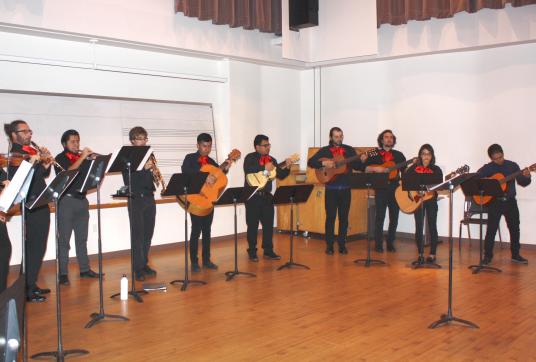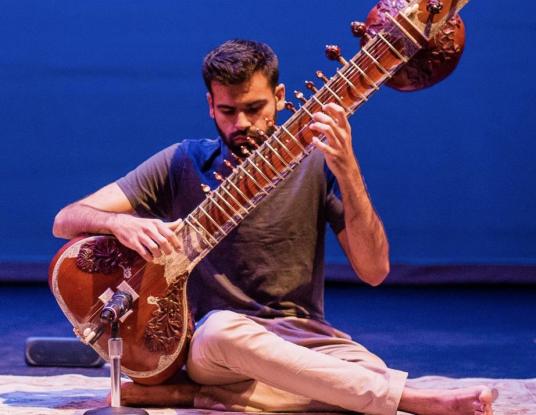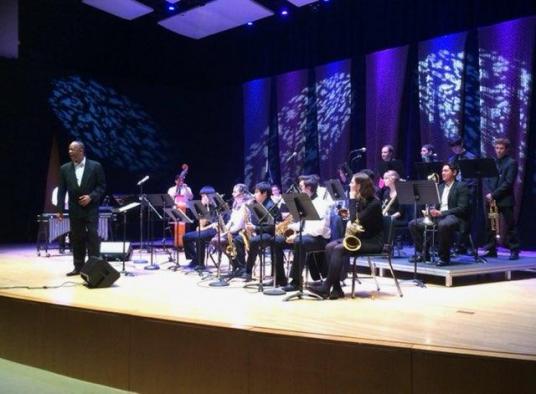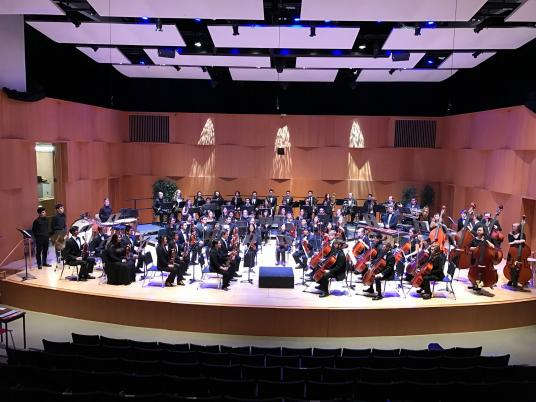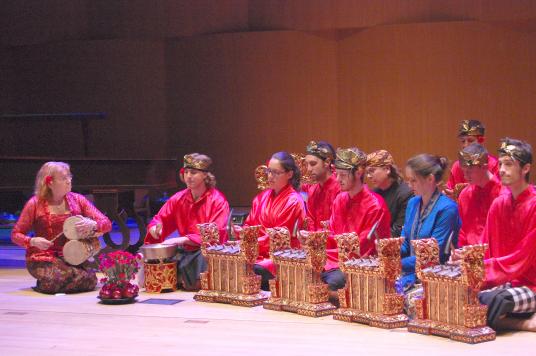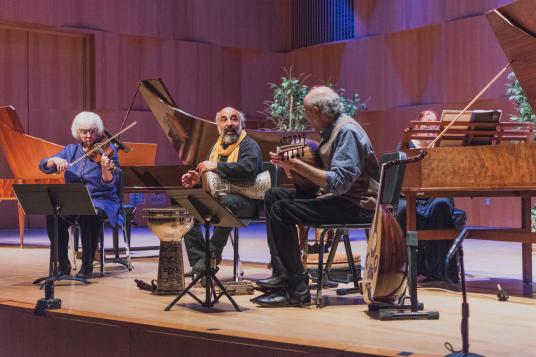The Music Department at UC Santa Cruz offers two undergraduate degrees: a Bachelor of Arts (B.A.) and a Bachelor of Music (B.M.).
The B.A. degree offers a uniquely diverse curriculum, with the option of completing a concentration in either Contemporary Practices, Global Musics, or Western Art Music.
The B.M. degree is designed for students who intend to pursue a career in music performance.
The department offers minors in Electronic Music; Jazz, Spontaneous Composition and Improvisation; and Western Art Music, providing more access for music students and students in other disciplines to engage with music during their studies at UC Santa Cruz.
Both B.A. and B.M. degrees are distinctive in that they integrate elements of performance, theory, composition, literature, and history, and culture. Students leave UC Santa Cruz prepared for graduate studies and music careers in performance, teaching, and the digital arts.
Our new undergraduate curriculum includes:
-
Three concentrations within the B.A. degree program:
-
Contemporary Practices - composition and performance of new works of music;
-
Global Musics - research and performance from musical cultures around the world;
-
Western Art Music - performance, history, and theory of classical music in Western Europe;
-
-
A B.M. degree with a focus on performance in Western Art Music repertoires;
-
Three minors:
-
Electronic Music - learn the tools of music technology to aid in sound production, and film & video game scoring;
-
Jazz, Spontaneous Composition and Improvisation - history, theory, and performance of jazz and other improvised musics;
-
Western Art Music - performance, history, and theory of classical music in Western Europe.
-
Through these curricular offerings, students will encounter an extraordinarily rich variety of performance opportunities. Specifically, our students engage with music:
-
as a cultural practice in ensembles focusing on musical traditions from Europe, Central Asia, Latin America, North America, South Africa, South Asia and Southeast Asia;
-
temporally in ensembles based on Baroque, Classical and contemporary idioms to deepen their understanding of performance practices;
-
technologically in electronic music ensembles and workshops where students experiment with innovative technologies to develop their own projects with the support of their advisors and peers.
-
collaboratively in seminars geared toward student composition and improvisation.
Students at UC Santa Cruz have extraordinary performance, composition, and professionalization opportunities. All instrument and voice faculty are celebrated professional musicians, who provide unparalleled guidance for students in performance and professional development. Ensemble courses culminate in an end-of-quarter performance, providing students with regular performance opportunities in a world-class recital hall. Student composers frequently collaborate with Arts Division faculty and peers to create and showcase their works. The electronic music minor provides hands-on opportunities for students to learn a variety of techniques related to electronic sound production, composition and recording in a state-of-the-art studio facility. The Opera Program allows students to be involved in every step of a major production, from concept and design considerations to marketing and arts management. As performers, composers, artistic collaborators and event organizers, these programs allow students to develop musically and professionally for diverse career paths and industries.


